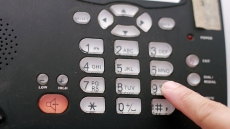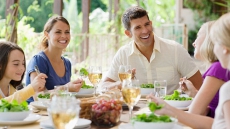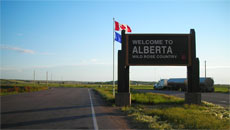UBC Vancouver is ditching single-use coffee cups and plastic food ware, and encouraging students, faculty and staff to choose reusable options such as their own mugs, water bottles and cutlery instead.
The move is part of UBC’s Zero Waste Food Ware Strategy—adopted in June 2019—aimed at keeping as many single-use coffee cups, plastic straws, bags and cutlery out of landfills and the environment as possible. Straws will still be available upon request for accessibility purposes.
“Single-use plastic is a global problem that every community is tackling differently,” says Bud Fraser, planning and sustainability engineer at UBC. “As a long-standing leader in global sustainability, UBC has an opportunity to lead the region in reducing single-use items and to make an impact far beyond our community. This is an important step toward a zero waste future for food and beverage on campus.”
Starting in January, all food and beverage retailers on campus will be required to charge customers a separate fee for single-use items—initially coffee cups—to encourage the transition to reusable food ware. To avoid paying the fee, consumers can bring their own travel mug or choose to enjoy their drink in the store using a reusable mug.
Retailers—not UBC—will determine the single-use cup fee, which must be at least 25 cents, and will collect the fees. Retailers will determine how to use the fees, which may include applying them to offset the extra cost associated with transitioning to different products.
Retailers will also move toward offering smarter, more sustainable materials for single-use items, such as wooden cutlery that will be available upon request, and will discontinue certain items, such as foam cups and plastic bags. Customers are encouraged to bring their own cutlery. Improved in-store recycling bins and signage are also part of the strategy.
In 2017, 1.7 million single-use coffee cups, 2.3 million pieces of plastic cutlery and 690,000 plastic bags were given out on the UBC Vancouver campus alone. Many single-use items are often not disposed of in the correct recycling or composting bins because they are challenging to sort, which creates problems at composting facilities and degrades the quality and value of materials for recycling.
“Our largest food retailer, UBC Food Services, has already successfully implemented some of these changes, and the new strategy offers a unique opportunity to further reduce waste by extending these successful requirements to the wide range of retailers across campus,” says Victoria Wakefield, purchasing manager at UBC Student Housing and Hospitality Services. “With an aligned strategy that details how food is packaged and served, all UBC food and beverage retailers are able to participate and help elevate our zero waste activities to the level our students and the wider community are demanding.”
The Zero Waste Food Ware Strategy will not only help UBC meet its waste reduction targets and operational costs through increased efficiency in recycling and composting, but it also aligns with the city of Vancouver’s zero waste strategy.
The university’s strategy was partly informed by a research study commissioned in 2018 by UBC SEEDs and Campus and Community Planning, which examined the potential to recycle various types of plastic and their environmental risk in ocean ecosystems. The study, led by then-graduate students Kaleigh Davis and Fiona Beaty, traced the journey plastics make when they leave UBC, from recyclers in the Lower Mainland to manufacturers across the ocean. The findings emphasized the need for UBC to prioritize reducing single-use items, and provided practical recommendations for switching from high-impact to low-impact plastics for items that cannot be eliminated.
“The high numbers of single-use items distributed across campus each day have far-reaching negative consequences for our local marine environment,” says Davis. “Out of all the plastic food ware items, cutlery poses the most severe ingestion risk for seabirds, sea turtles and marine mammals, while the plastic lining and lids from disposable coffee cups accumulate huge amounts of water-borne pollutants that may be toxic for the animals that ingest them.”
An important part of the strategy, which was developed in consultation with some campus-based retailers, is also ensuring economic viability for the businesses. UBC staff are working to support affected retailers as they move toward implementation, including offering a zero waste assessment of current food ware products and recycling set-ups with accompanying recommendations, and providing signage.
“We are committed to doing our part in reducing our environmental impact. One way we can achieve that is through providing incentives to reduce single use items,” says Jesse Neate, retail operations leader for JJ Bean. “We have always felt coffee tastes best when enjoyed in a ceramic cup or non-leaching travel mug so this aligns well.”


